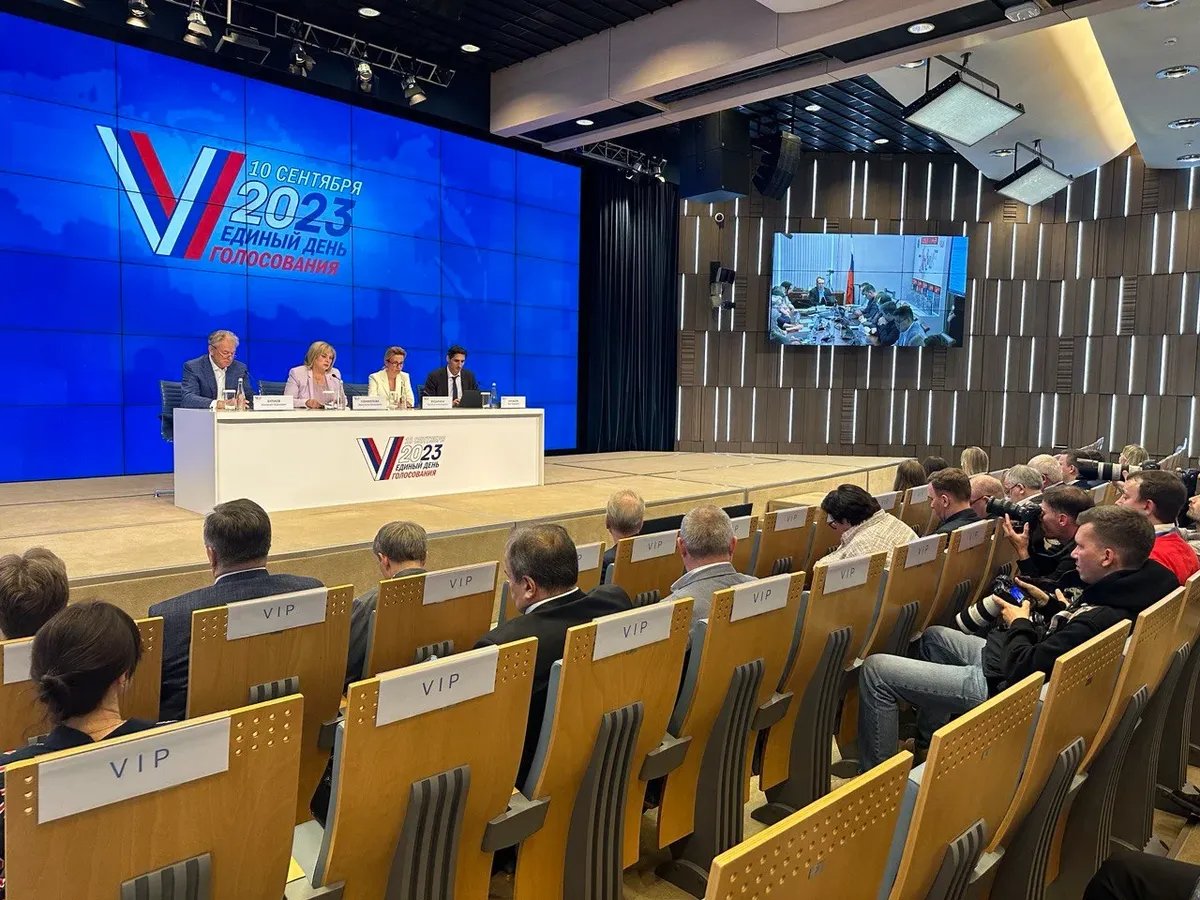
Photo: The Russian Electoral Commission
It is day 565 of the war in Ukraine. Two drones were downed in the Belgorod region of Russia overnight. The preliminary results of Russia’s three-day local and regional elections point to the re-election of all incumbent governors affiliated to the ruling United Russia party. Elections were also held in the four Russian-occupied regions of Ukraine illegally annexed by Russia last year.
Novaya-Europe’s news round-up will brief you on the main developments overnight.
Regional elections held across Russia
Russia held local and regional elections on 8-10 September to select 26 regional governors, 16 regional assemblies, and to fill vacant seats in the State Duma, Russia’s lower house of parliament.
The Russian Electoral Commission has released its projected results, which point to all incumbent governors belonging to the ruling United Russia party or the Communist Party being re-elected.
With over 99% of ballots counted in the Russian Far Eastern regions of Primorsky, Amur, Magadan, Chukotka, Krasnoyarsk, and Yakutia, sitting United Russia governors are projected to win, with each receiving over 70% of the vote.
Incumbents also led the race in the central Russian regions of Voronezh, Smolensk, Ivanovo, and Oryol, with the Communist Party candidate and governor of the Oryol region, Andrey Klychkov, the only non-United Russia member expected to win. In the north-western region of Pskov, the United Russia candidate and incumbent governor, Mikhail Vedernikov, has received a projected 86.3% of the vote.
The Communist Party candidate and incumbent governor of the Siberian region of Khakassia, Valentin Konovalov, has received 63.14% of the vote. His challenger from the ruling United Russia party, Sergey Sokol, was forced to withdraw from the race at the beginning of September due to health issues.
Elsewhere in Siberia, four United Russia incumbents are leading the polls in the Kemerovo, Omsk, Novosibirsk, and Altai regions, with each candidate projected to win between 75% and 85% of the vote.
In the Samara and Nizhny Novgorod regions in the Volga federal district, two sitting governors representing United Russia are on lock to win the elections with over 98% of the votes counted. The sitting United Russia governor of the Tyumen region is projected to win 78.81% of the vote.
The incumbent Moscow mayor, Sergey Sobyanin, is leading the field in the capital with 76.39% of the vote, while the incumbent Moscow region governor Andrey Vorobyev has received 83.68% of the vote. Both are candidates of the ruling United Russia party.
All four vacant seats in the State Duma have also been won by United Russia candidates.
Elections held in Russia-occupied regions of Ukraine
Parliamentary elections also took place this weekend in the four Russian-occupied Ukrainian regions that Russian President Vladimir Putin unilaterally absorbed into the territory of the Russian Federation last year. United Russia was the clear leader in all four regions.
United Russia received 78.03% of the vote in the Donetsk “people’s republic”, 74.63% in the Luhansk “people’s republic”, 74.86% in the Kherson region, and 83.01% in the Zaporizhzhia region.
The Russia-installed governor of the Donetsk “people’s republic” Denis Pushilin declared the results in his region to be final.
Two drones downed over Belgorod region
Two drones were shot down overnight in the Belgorod region of southern Russia, the Russian Defence Ministry said in a statement on Monday morning.
The regional governor, Vyacheslav Gladkov, said that no one had been hurt in the attack, with debris from the downed drone landing on a road.
The Belgorod region, which borders Ukraine, regularly gets shelled and attacked by drones, with residents of settlements near the border urged to evacuate by the authorities due to the ongoing threat to their lives.
